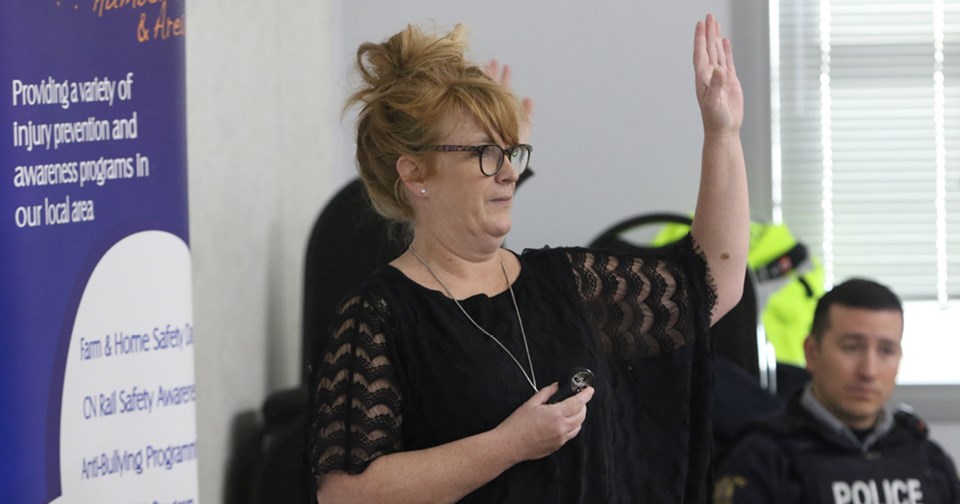HUMBOLDT — A researcher is asking older adults who have recently experienced a fall and dealt with the health system as a result to tell their story.
Daphne Kemp, the Saskatchewan Health Authority’s Saskatoon area regional fall prevention co-ordinator, will be leading a focus group at the Gathering Place on Friday, Nov. 8 starting at 1 p.m.
“We want to get participants’ lived experiences with their falls and how they interacted with the healthcare system so that we can inform leadership and policy to make patient-centered care and fall prevention better in the province,” she said.
Kemp is conducting the research with Dr. Catherine Arnold, who works at the University of Saskatchewan’s School of Rehabilitation Science.
The focus group sessions take around 90 minutes, with a small honorarium presented to the participant at the end. As of Nov. 6, only three people have registered.
“It’s just a great opportunity for people to tell their stories can participate in something that can hopefully shape some policy in the province and move things forward,” Kemp said.
Falls are the leading cause of injury for seniors in Canada. According to the Canadian Patient Safety Institute, more than one-third of Canadian seniors experience falls, while the direct cost for falls are estimated at $2 billion a year. November has been declared fall prevention month.
“We want to keep people as safe as possible and so we also want to have people's input and understand what their experiences are, and include patients and people in the community as part of the research,” Kemp said.
Those interested in participating in the focus group, which is at the Gathering Place on Friday, Nov. 8 starting at 1 p.m., are asked to contact Kavitha Ramachandran at 306-966-8619 or kavitha.r@usask.ca.
What to do after a fall
If you can get up
- Lie on your side; bend the leg that is on top and lift yourself onto your elbows or hands.
- Pull yourself towards an armchair or other sturdy object, then kneel while placing both hands on the chair or object.
- Place your stronger leg in front, holding on to the chair or object.
- Stand up.
- Very carefully, turn and sit down.
If you can't get up
- Call for help if you think you can be heard.
- If you have a emergency call device or telephone at hand, use it.
- If you don't, try to slide yourself towards a telephone or a place where you will be heard.
- Make noise with your cane or another object to attract attention.
- Wait for help in the most comfortable position for you.
- If you can, place a pillow under your head and cover yourself with a piece of clothing or a blanket to stay warm.
- Try to move your joints to ease circulation and prevent stiffness.
Source: Public Health Agency of Canada



